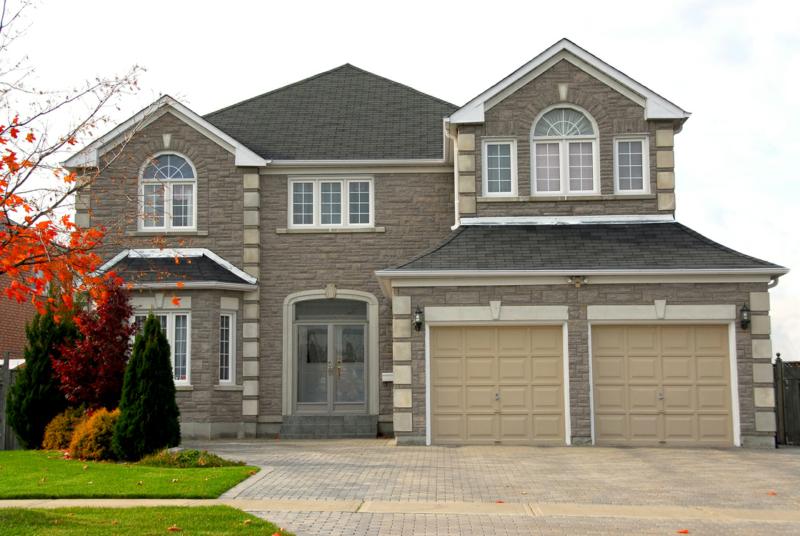by Paul Slaybaugh | May 23, 2009 | Home Selling, Scottsdale Real Estate
Real Estate agents are largely responsible for the massive housing inventories of the past two years.
That bears repeating.
Real Estate agents are largely responsible for the massive housing inventories of the past two years.
This is a conclusion that does not please me to reach, but my conclusion nonetheless after continuing to see overpriced home after overpriced home hit the market. You can blame banks or non-paying homeowners for the glut of foreclosure inventory, but guess what? Bank owned homes sell. By and large, they are priced appropriately and adjusted regularly until they sell. Compare this to the unrealistic seller/listing agent tandem with the home down the street that enters the marketplace grossly overpriced, and just sits there while the days on the market pile up without mercy.
You can blame the banks again for the short sale listings that take forever to work their way off the market because of all the bureaucracy and idiocy involved. In many instances, I would agree with you, but I find ample fault with the listing agents who do not take the time to learn the process and requirements involved for the institution(s) that hold the lien(s) against the property. Even though many banks seemingly select the files they will actually review via a no holds barred game of inebriated backgammon on the first of every month, too many agents simply throw a short sale listing on the market at a completely unrealistic price (compared to what the bank will be willing to accept) and hope that they can make it stick. Buyers get frustrated with the process after several months of inaction and often exit the transaction before getting a response from the bank. Even if the home eventually sells prior to the looming trustee’s sale, it has contributed to the bloated inventory level for months instead of weeks. Some banks will not negotiate with a seller at all until an offer is in hand, but that doesn’t mean that the agent can’t have all of the documentation lined up in advance. Many short sale listing agents that I have encountered have been a bit lacking in the communication department as well. Buyers are more likely to hang around and wait for a response if they are receiving regular feedback and updates from the seller’s side of the table as to the progress with the bank. A phone call or an email update every week or two would go a long way to keeping some of these deals together and clearing out these negative equity weeds that are choking out the resale lawn.
Inventory levels have dropped considerably in the last couple of months, but we have a long way to go before we reach a nice healthy balance of buyers and sellers. While everyone is currently focused on stimulating demand, we professionals bear a large portion of the responsibility for the supply. Every time an agent in our ranks takes a listing for 100k over the property’s current value, or even 10k for that matter, he/she is contributing to the stasis that has plagued our Valley since the equity and credit bubbles burst in 2007.
We all want your business, and are generally eager to please. As such, it can be a temptation to tell a prospective client what they want to hear when it comes to the value of their house. Less charitably, it can also be a temptation to “buy the listing” by quoting an unrealistic price to sway a seller to list the home with us versus the agent quoting a considerably lower asking price. A good agent will ensure you command a top of market price for your home, but not a one of us has a secret stash of magic beans that will grow the value of your digs above and beyond what a buyer will be willing to pay. We can advise you as to how to make your home more market ready, and how to improve its value, but we can’t fit a $750,000 peg into a $500,000 hole.
Ray and I vow to give it to you straight. It does neither party, nor the market, any favors to cram yet another overpriced listing into the protesting pair of lycra pants that is the MLS. Nope, no more glazed doughnuts on our watch. It’s time for an industry-wide low glycemic carb / high saleability diet.
As I tell my clients when we sit down to review the data, I would rather tick you off with my evaluation up front than 6 months down the line when your home hasn’t sold. Better to lose business truthfully than be complicit in the further swelling of our hemorrhaging housing market.
A home should be priced accurately, or it should not be priced at all.
We don’t list homes to practice. We list them to sell.
by Paul Slaybaugh | May 15, 2009 | Home Selling, Scottsdale Real Estate
There is always opportunity in the margins. Unfortunately, margins tend to attract the marginal.
The latest water cooler rumbling to emerge from a recent tour group meeting centered on a purported professional short sale negotiation company. Here in the Valley, short sale negotiation has become its own cottage industry in the past year and a half, and for good reason. Most Realtors had never encountered a short sale before the recent woes in the market. You can include me among those ranks. As such, there has been great demand recently for third party professionals who know the drill and have contacts within the various institutions for expediting the process. While the skill-set required to negotiate with the bank is really little more than gumption, persistence and know-how, the learning curve can be steep, and the time commitment impractical. Many agents would rather enlist the help of a specialist to handle this critical portion of the transaction than practice on their first few short sale clients. The stakes are too high for an erstwhile, but bumbling rube to fumble it all away. For many of us, it just makes good, practical sense for all parties involved.
Now comes the “but.”
Back to the recent tour meeting of which I mentioned, the latest scuttlebutt is that at least one major short sale negotiation company is the focus of an open investigation. It seems there is some question as to whether this outfit was utilizing fraudulent measures to cash in on a much grander scale than the stated fee of their services. Nothing has been proven, and no charges have been filed to my knowledge (hence the glaring omission of the company name here), but the concern is that this company might have engaged in the “double escrowing” of the short sales they were hired to negotiate. Plainly stated, upon receiving an offer that both buyer and seller had executed and forwarded to the negotiator to submit to the bank for review/approval, this company is thought to have tabled said offer and worked to negotiate an even lower sale of their own with the bank. Once accepted, they would orchestrate the virtual simultaneous closings in which they bought the property from the bank and turned around and sold it to the buyers at the higher price. Neither the buyer nor seller would ever know that there were actually two transactions taking place concurrently.
Of course, if the negotiation with the bank failed, the buyer and seller would simply be informed that the offer had been rejected … eventually. Even though the bank never saw it. The buyer wouldn’t be overly thrilled to learn of this, of course, but the seller is the one who really stands to lose in such a scenario. He is the one with the imminent foreclosure and interminable credit limbo on the line while the entity hired to negotiate on his behalf plays Russian roulette with his financial well being.
So while nothing is proven in this instance as of yet, it serves as a consumer alert. While I was careful in the selection of the professional I have enlisted to negotiate with the various banks on my sellers’ behalf, some might mistakenly believe that any fly-by-night company that has branded itself as a “short sale negotiation specialist” is reputable. Just as you would exercise diligence and perform your own investigations in the selection of your Realtor, don’t let your guard down when settling upon the service enlisted to actually talk to the bank. Find out how long they have been in operation. Are there any complaints lodged with the Better Business Bureau (though some may be such neophytes that they haven’t been around long enough to incur complaints)? How long has your specific negotiator been involved in either the Real Estate or banking industry prior to their current position?
Maybe I’m just jumping at shadows, but I can’t help but wonder if this is a niche that won’t prove to be populated by failed Realtors, loan officers, car salesmen, financial advisers, taxidermists, Maytag men and arthritic slow-pitch softball umpires in hindsight. There are some good ones out there who are absolutely invaluable to the busy Realtor and desperate seller alike, but I am under no illusion that there aren’t more than a few soulless chasms of dollars and teeth hiding behind the polished veneer of a snappy tagline as well.
When dealing with a property that you are trying desperately to sell before the bank forecloses, the stakes are elevated to financial Thunderdome proportions. If your short sale survives the fight, you will walk away with a limp (credit damage, possible tax ramification, etc), but at least you walk away. A foreclosure will effectively kill your aspirations of future home ownership for the next 5 years.
Choose your weapon wisely.
by Paul Slaybaugh | May 5, 2009 | Home Buying, Scottsdale Real Estate
The latest sales numbers are in, and the news is encouraging. Closed sales and pending sales are up rather dramatically and the listing inventory is sub 40,000 (37,000 and change at last glance) for the first time in recent memory. The underpinnings of the Valley Real Estate market have been statistically improving steadily with each passing month.
Is the bloom returning to the rose?
All signs seem pointed towards a market poised for recovery. Said recovery may, in hindsight, prove to already be well under way. Of course, bringing supply back in line with demand is the most tangible proof we have of a recovering market, but it doesn’t answer the question we Realtors can’t escape. We hear it in the line at Starbucks and when cornered by someone three martinis deep at cocktail parties:
“When are prices going to bottom out?”
That, my friends, is the 2 trillion dollar question. Let me preface my forthcoming opinion with the following. Anyone who tells you definitively where this elusive “bottom” is probably derived their opinion by studying flow charts, statistics, MADD Magazine and cutting the head off of a live chicken under the cover of midnight prior to the winter solstice.
My voodoo is no better than their voodoo.
That said, when I consult the astrological charts and the Arizona Regional MLS data, I am left with two distinct impressions. First, it is self evident that the house of Apollo will be foreclosed upon prior to the arrival of the harvest moon. Secondly, that the cocktail question cannot be properly answered in its current construct.
Here’s the way I see it. A segment of the market has already bottomed out. Not just any segment, mind you, but the primary driver of the past year’s Real Estate activity across the greater Phoenix and Scottsdale area. Of course, bank owned property is to what I am referring. With a disproportionate number of actual consummated transactions involving foreclosure properties at present, it is my humble opinion that the banks have already crashed their values through the floor. Attracting multiple offers and bidding situations in many instances, they would be hard pressed to erode pricing further now that demand is lined up around the corner in the form of cash laden investors.
The next part of the equation, though, might be difficult to swallow for Valley homeowners (A + B = oh Crap!). With foreclosure properties really driving pricing, few traditional sellers have been able to compete. Foreclosures have sold at record clips while resales have lagged behind their typical share of the market. As such, a gulf has opened up between the bank properties which are selling and the non-bank owned homes that are collecting dust at non-competitive prices. For the market at large to officially “bottom out” in my opinion, resale prices still need to fall further to decrease the gap. Buyers need a reason to start buying resale homes again, and that reason is all wrapped up in pricing. Most folks would prefer to buy a well maintained home from a mom and pop seller than an abandoned bank owned property, but not if it is priced a couple hundred thousand dollars higher.
Synopsis: I think the lowest prices that the Valley will see are presently or very nearly at hand because there is a great deal of demand for these homes. There will be good values still to come as resale prices drift further down, but don’t expect the bank owned bargains you are seeing today to get substantially better in the coming weeks and months.
As the title suggests, I think the summer will tell the tale of our market’s health. The spring is always our most active season, so I want to see how the market reacts when the seasonal buyers leave town. Will we retain the momentum from a brisk spring or will we recede back into the doldrums as the mercury rises? I predict the former, but again, that’s just my voodoo.
It wouldn’t be a Real Estate post without a call to action, so I’ll leave you with this. Wherever prices are next year, interest rates are highly unlikely to be in the 4’s like they are presently. If you’re asking me, and even if you’re not, I think it’s time to buy. Last call for bargain shoppers is looming.
Now, about this chicken …
by Paul Slaybaugh | Apr 17, 2009 | Home Buying, Scottsdale Real Estate
Times were you looked at a few houses, found one you liked and made an offer to the current owner. After a bit of haggling, you settled on a price that both parties could live with and away you went. Easy as pie.
In the current landscape, however, buying a home is not always that simple. Due to the prevalence of foreclosure properties and upside down sellers in today’s market, a buyer is often in the dark as to the nuances that may vary from one property to the next. To that end, there are certain rules of thumb that a buyer should keep in mind as he or she navigates the 2009 Scottsdale Real Estate market.
1. The Short Sale Property

"Upside down, boy you turn me, inside out ..."
You’ve read about them in the paper, heard about them on the news and know somebody who attempted one, but still may not know exactly what a short sale is. First off, I would be remiss if I didn’t make the requisite quip that short sales are anything but short. By and large, they are loooooooooooooooooooooong.
The term “short sale” is derived from the seller’s lack of equity in the property. In fact, the seller is upside down to the point that the market value of the home is less than what is owed on the mortgage(s). With a short sale, the seller must convince the bank to take a loss by agreeing to the sale. There are numerous pitfalls, including waiting for weeks or months for the lienholder’s response and low success rates (less than 10% of short sales are successful). One particular difficulty lies in ascertaining whether a seller even qualifies for a short sale at any price. Each institution has its own unique standards, but sellers must adequately demonstrate hardship (job loss, etc), provide up to date financial statements and pay stubs, document where all funds for a line of credit have gone (the lender in 2nd position will disallow a short sale if the funds went anywhere except back into the house (kitchen remodel, pool, etc). The biggest saboteur of a short sale, other than an incompetent listing agent, is the presence of a second loan. Multiply the difficulty exponentially if the loans are held by different institutions.
If it sounds like a lengthy, treacherous process, that is because it often is. Short sales, in this agent’s humble opinion, only make sense for the buyer with no real time table. Investors, specifically, are primed to take a stab at one if the purported price (the price listed in the MLS is really just a moving target when you don’t know what the bank will ultimately deem acceptable) is attractive enough. If you don’t plan to live in it, and won’t be devastated if it doesn’t pan out, have at it.
2. The Foreclosure Property

I'll take a single-family home and $20 cash back, please
If 2009 could be summed up by initials, they would be “REO.” Real Estate Owned properties, or foreclosures, are all the rage this season, and for good reason. Banks are awash in foreclosed homes at present and have effectively set the market. Eager to rid themselves of bloated inventories, the various institutions have well-earned reputations for bargain basement pricing. By the time a bank takes a property back from an owner in default via a Trustee’s Sale, I find they are often ready to deal. If the short sale process can feel like a rudderless vessel as your offer drifts from file to file in the bank’s loss mitigation department, there is actually a captain at the helm by the time the bank ultimately rejects the offer(s) and opts to foreclose instead. Now an asset manager is responsible for offloading the acquired property. Just the titles alone speak volumes as to the motivational forces at play:
loss mitigation VS asset management
More often than not, a property that is taken back by the bank will reemerge as an REO property at an even lower price than the listed price of the failed short sale attempt. Does it make sense? Not really, but that’s what often happens. And the price is no longer a moving target. With the bank now the principal, they set the list price and will negotiate more like a typical seller (albeit at a slightly slower and more aloof pace). Expect to wait up to a week for a response and the possibility of fighting off multiple offers due to the low pricing, but it sure beats waiting months for an all too often unreasonable response.
The negatives of dealing in bank-owned property are primarily rooted in lack of disclosure about the home and the penchant for selling property “as is.” You can be sure that something will be missing from the home. Either vandals have cannibalized the A/C for copper or the former owner yanked all of the appliances and the hall bath towel rack out of the home on the way out, but rest assured, some component of the house is FUBAR. Complete with heavy handed addenda that favors the seller, the trade off for the great price on a bank property is an often uncared for home with no disclosed history of damage/repair and no one to repair the defects you find during the course of your due diligence period.
Yes, you do get the opportunity to inspect even though the bank will require an “as is” addendum. If you ever see language in a contract or addendum disallowing your right to inspect the property … run!
3. The Resale Home

Quick, Marge, get the camera ... real people!
Ah, a home actually owned and sold by a real, unencumbered person. I must confess, finding such a specimen in the modern Real Estate jungle has been a rarity. At least finding one that can compete with the pricing of bank-owned homes, that is. As more and more sellers become realistic about the erosion that has taken place in Valley home values, though, I am starting to see the gap close ever so slightly. Obviously, anyone who bought a home in 2005 or later is not in a position to competitively price it for today’s market without attempting a short sale due to the subsequent swan dive in prices, but those who have been in their homes for a decade or longer are finally getting the memo and positioning themselves to compete with the banks. With prices still trending downwards, the smart seller is getting out in front of the curve and pricing his/her home to sell before any further price degradation can occur. When you find such a home with a seller still capable of maintaining, disclosing and repairing the property’s condition, and priced in line with the foreclosure market … buy it!
So there is a (not so) brief synopsis. Don’t limit yourselves unnecessarily when shopping for a home. Allow your agent to explore all available avenues, just be aware of what you might be signing up for with the entanglements that come with each option.
Most importantly, remember this: A low price in the absence of value is meaningless.
by Paul Slaybaugh | Mar 29, 2009 | Home Buying, Scottsdale Real Estate

It is an inevitable starting point for many buyers right now. Before I can finish saying hello, I am bombarded with requests to see bank-owned and short sale housing. Frankly, were we to change places, I would most likely do the very same. I am aware enough of the opportunities this market has created in the foreclosure arena to dedicate a more or less weekly post to bank-owned property spotlights, after all.
However, there are values everywhere right now. Resale homes have been dragged inexorably closer to the shallow end of the pool by the bank properties, and builders have been forced to sell off their inventory homes at even deeper discounts than usual. There is no part of the market that isn’t coughing up a bit of water.
Ah, brand new construction at foreclosure pricing … can it be?


In some cases, yes, it can.
Builder spec homes just might provide the alternative to bank-owned property that Phoenix area value hunters seek. A spec home is either one which the builder constructed without a waiting buyer in the wings or one in which the original buyer bailed out on the transaction after construction commenced. These homes make great options for buyers who prefer brand new construction, but don’t want the lengthy wait involved in having their new home built from scratch. A buyer can typically move into a completed spec home within 30 days. Of course, if construction is complete, the new buyer will not be able to make any cosmetic choices in regards to flooring, cabinetry, etc. The big discounts, however, are often very persuasive arguments for that sacrifice.
Eager to dump existing inventory in the best of times, builders are even more anxious to get their specs off the books in this market. As evidenced by the near standstill in new permits being pulled by builders for new projects, it is cut and run time for many. I am seeing completed spec homes with significant levels of upgrading being advertised for sale well below base price. In other words, if you signed a contract to build from scratch, you would pay more for a home with absolutely no upgrades than you would for the completed home with cherry cabinets, slab granite countertops, stainless steel appliances, premium culdesac lot, etc.
Another advantage that a builder can offer a prospective buyer right now is tough to beat in-house financing. Not usually a fan of running my loan through the same guy who is selling me something, any conflict of interest concern tends to melt away when they disclose the cheap rate blocks they have purchased for their customers. In addition to the low sales prices, I have isolated several builders who are paying up to the maximum allowable buyer closing costs. A recent client is getting a fixed rate in the 4’s with an additional buydown for the first two years. At no out of pocket cost. All he has to show up to closing with is a downpayment. Not too shabby. *
You have to be careful, however. As I mentioned in a previous post, there are many struggling builders throughout Maricopa County. While a little financial pinch works in the buyer’s favor, too much can lead to unfinished subdivisions, mechanic’s liens and other fun stuff. You want to do your research (or better yet, work with a knowledgeable Realtor 😉 to ensure you are not walking into a doomed project. I recommend national builders with ample working capital and developments that are nearing close-out.

You don’t want to get stuck in a ghost town.
Bear in mind that you may have to venture a bit further from your desired location if brand new construction is your bent. Scottsdale is largely landlocked, with only the valuable land in the North remaining open to development. There is infill construction in central Phoenix, but the majority of new home projects are located in South Phoenix (Baseline corridor), North Phoenix (I-17 corridor) and pushing ever Westward towards LA. For those in the Southeast Valley (Mesa, Gilbert, Chandler, Tempe, Queen Creek), there are still plenty of options.
I spent the last week looking at a fair amount of them, as a matter of fact.
I had one of those purported foreclosure buyers who ended up buying a brand new spec home from a quality home builder instead of any of the bank-owned homes in the same price range that needed work, had no available warranty and disclosure information and no special financing incentives.
The moral of the story is not to rule anything out. Look less at the property label (bank-owned, resale, new) and more at the property itself. You just might be surprised at the unexpected bargains that are available to be had across the full color spectrum of the 2009 Real Estate market.
Give me a call if you want to find just the right shade of perfect.

* I always advise speaking with a reputable outside lender to compare programs/costs









